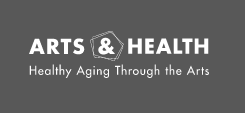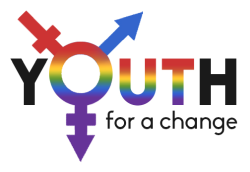This talk was delivered on May 7, 2024 for the BC Health Coalition Lunch N’ Learn series on Barriers to Access for Equity-Deserving Groups https://www.youtube.com/watch?v=y8enV-Eu5Gc
Today, I am going to talk about 2 Spirit, Lesbian, Gay, Bisexual, Transgender, Queer, Asexual and Intersex people who are 65 and older based on my experiences of being an older lesbian, a member of QUIRK-E, the Queer Imaging and Riting Kollective for Elders which has about 25 people. We have been supporting each other in creativity and advocacy for 18 years. We receive support from Britannia Community Centre and QMUNITY BC’s Queer and Trans Resource Centre. I am going to use the term Queer Elders at times as shorthand.
Let’s start with an intersectional lens and recognize that Queer Seniors are part of every other community and all the barriers that affect those marginalizations affect us as well. Language, being older, disabled, racialized, isolated, living alone: having income, housing and food insecurity – all these social determinants of health function as barriers to accessing health care. Queer Seniors are overrepresented in every marginalized category and face all these barriers. Of course, this varies by individual.
I will talk about some barriers that particularly affect 2SLGBTQ+ Elders. There are ongoing and current effects from our past experiences of discrimination and stigma. As elders, we have lived through decades of being criminalized, pathologized and moralized for being who we are. We have fought to change these negative forces with great success but we have not erased their effects on us. We are hyper-aware that our progress is under attack not only in other countries or provinces, but here as well. We have not forgotten what lack of human rights feels like.
We were at risk of being jailed. Some of us received treatments like surgery without consent as infants for being intersex. Some of us were forced into involuntary psychiatric care. Most of us were separated from our faith communities and some subjected to harmful conversion therapy. One time following an accident my partner rushed me to ER. Although I was having trouble finding words due to being in shock, the physician ignored and refused to communicate with my partner. We bear the scars.
During the AIDS pandemic, gay and bisexual men in particular were treated as less worthy of care than others. They were seen as being morally depraved, deserving to die, and as being an infectious threat to heterosexuals. Meanwhile we witnessed hundreds of our loved ones die. In the face of this we created wonderful systems of support arising from our own community and spreading out into other parts of health care. Now, thirty plus years later, there are many supportive, compassionate and knowledgeable health care providers. But that doesn’t erase the memory of our past mistreatment. Even though we may expect by human rights standards and protocols that we will be treated with respect, dignity and autonomy, we know some individual health care providers will and some may not. We don’t want to be blindsided by subtle or overt bigotry when we are at our most vulnerable — which is when we most urgently need health care.
We strongly seek out services known to be safe. We tend to avoid the unknown until we see overt signs that we will be welcomed – Rainbow signs or recommendations from friends. Many of us are retired. This means if we have found trusted primary care providers, they are retiring too. Who do we access next?
The barrier of not knowing whether our health care will be affirming or not is especially intense for our members who are transgender or gender diverse. When providers discover our bodies don’t match their assumptions about what bodies should look like, providers may not provide knowledgeable care. For example, not screening a transgender woman for prostate cancer or a transman for cervical cancer. Or those trusted to help us may even communicate disgust or disapproval. There is a case currently at the BC Supreme Court about a nurse who opposes treating transgender patients. We follow the news closely about such events and are affected by negative press even if we have not personally experienced mistreatment.
In addition, we treasure our independence. We try to live without those that don’t accept us. Lesbians, in particular, draw self esteem from being capable, self-reliant individuals who don’t depend on husbands. A former dance teacher had to fall several times before agreeing to accept mobility aids. Visible forms of assistance can really challenge our sense of who we are. We dread the need for Residential Care which might mean going back into the closet. Because even if the staff are caring, we can expect that many of the residents, who are from our generation, will not be.
Another persistent barrier is our reliance on chosen family – friends not relatives. Many of us were rejected by biological family members. Many of us moved across the country or from other countries to be removed from such rejection. Even if our blood relatives have gradually become more accepting, they are now too far away or too old to provide the circles of support we need if we become chronically or seriously ill. Some of us have children and grandchildren but the majority do not. Many of us don’t have partners or had partners who are now deceased. Being asked about our ‘next of kin’ is painful. We want our chosen family treated as family, especially at end of life. Sometimes they are. Sometimes they aren’t.
In conclusion, elder queer people may avoid accessing health care because, despite the dangers to our health for doing so, it just seems safer not to. Cultural safety is our most vital need in accessing health care.
Summary of Barriers to be Overcome in Accessing Health Care for 2SLGBTQ+ Elders
- Be aware of Intersectional marginalization – isolation, age, income, race, ethnicity, language, ability
- Acknowledge past experiences of discrimination and stigma
- Don’t Criminalize – put at risk of arrest
- Don’t Pathologize – no involuntary surgery or psychiatric treatments, don’t fear “contagion”
- Don’t Moralize – condemn, separate us from our faith communities, force conversion “therapy”
- Provide Cultural Safety – Safe Spaces
- Recognize Our Chosen Family












